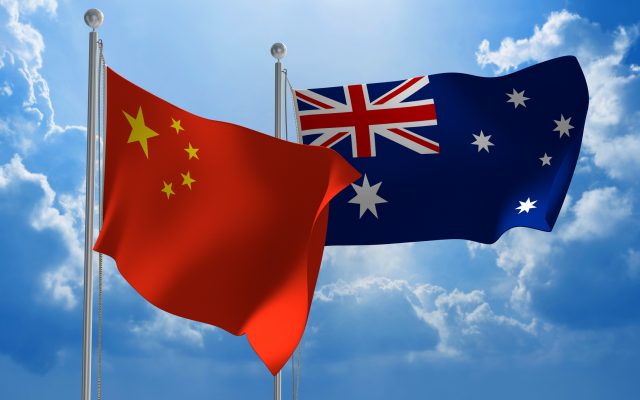Australian PM Albanese to discuss wine tariffs with China
The Australian prime minister Anthony Albanese has said he will discuss Australian wine tariffs during the next meeting with Chinese president Xi Jinping.

Speaking at the Australian Industry Group’s 150th anniversary dinner on Monday (14 August) he said the decision by the Chinese government to remove restriction on the barley trade were a “huge win” for both countries.
As a result, he would now press Xi Jinping on removing the remaining barriers to trade, including lobster and beef, and Australian wine, which was the result of “a deliberate, consistent and principled approach” to stabilising the relationship with China.
He said about the barley situation: “And all those points hold true for Australian wine, Australian lobster and some of our beef exporters as well, where there are still trade impediments in place.
“We want to see these removed, in the best interests of everyone. I’ll certainly be taking the opportunity to make that point when I next have the chance to meet with President Xi.”
Reports have claimed that Albanese could meet with Xi Jinping within the next few weeks at the G20 summit in New Dehli, due to take place on 9-10 September, having previously met him at the same even in Bali last November.
The news follows the Chinese commerce ministry announced in a notice earlier this month that it would be scrapping 80.5% tariffs on Australian barley, which were originally imposed during the height of the two countries dispute in 2020.
The ministry said it was making the move due to “changes in the market situation of barley in China” and it no longer needed to impose the duties on imported barley from Australia.
Partner Content
As a result, the Australian government said it would now stop its World Trade Organisation challenge on the barley tariffs, which is had already suspended because China had previously stated it would review the measure.
It is hoped the barley breakthrough will mean the Australian wine tariffs, which can be as much as 212%, will finally be removed. At the time of writing, the WTO challenge on the wine tariffs by the Australian government is still in place.
China’s trade tariffs on wine originally came into effect in November 2020, imposing a charge of 107.1 – 212.1% on wine exports initially (the rates varied by company), which subsequently rose to 116.2 – 218.4% in March 2021.
The punitive export sanctions contributed to wiping AUD$2.08bn off the value of Australian wine exports in the year to 30 June 2022.
Speaking about the move, Farrell said the government intended to use the barley process as a “template” for resolving the wine issue.
He said:“I’ve consistently said, including in my warm meetings with the Chinese commerce minister, Wang Wentao, that we would prefer to resolve all of our disputes with China through discussion and dialogue, rather than disputation.”
The government said it was now “confident” of its case to the WTO on wine and the remaining trade impediments, which also include red meat and lobster.
In November, Australian prime minister Anthony Albanese met Chinese president Xi Jinping – the first time that leaders from the two countries have met in six years – sparking hope that the resumption of normal relations could lead to China dropping its punitive tariffs on Australian wine. More recently, China’s lifted an unofficial ban on Australian coal in January.
Related news
Delamain Cognac is 'optimistic about the future in China'
Carlsberg boosts presence in China with restaurant guide tie-up
Treasury Wine Estates plans leaner future amid US and China slowdown




